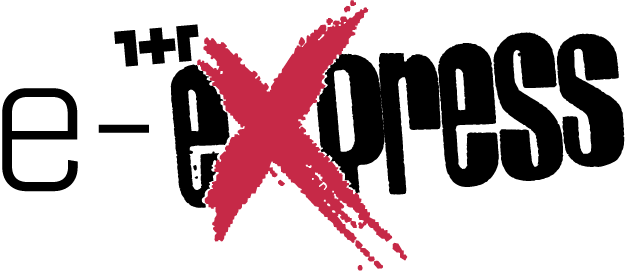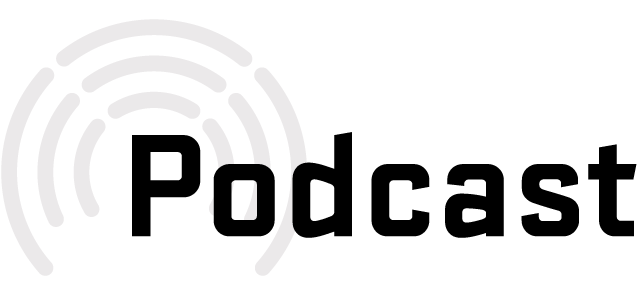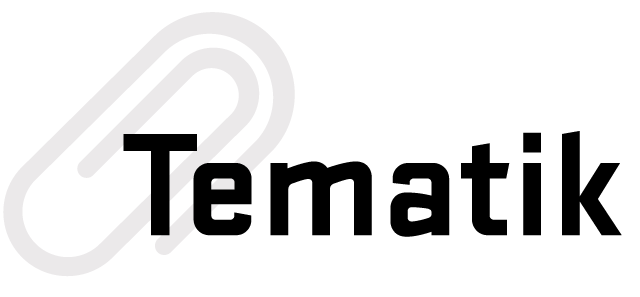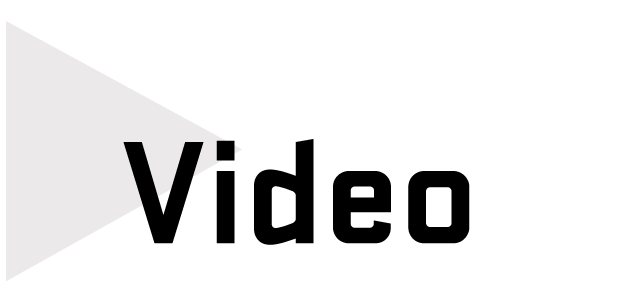A new wave of protests started in Lebanon in October, following the “WhatsApp tax”, and has put the country on the map of recent global uprisings. Walid El Houri, journalist and academic, the chief editor of Open Democracy’s North Africa West Asia (NAWA) section, who has taken part in the protests, tells the scope and the composition of the historic uprising.

Let’s start from the very beginning. The “WhatsApp tax” has been one of the triggering factors behind the protests in Lebanon which started in October, at least one of the most visible and mediatized reasons. What is the economic and symbolic value of this tax increase? Who are the people that are affected by this decision the most, especially with regard to class and age?
Walid El Houri: Indeed the “straw that broke the camel’s back”, so to speak, was the “WhatsApp tax”. Of course, this comes within a larger context that provoked the protests and we could expand on those later. But this tax had an important symbolic value in a country, which has on the one hand some of the most expensive telecommunication costs in the world when it comes to mobiles, and on the other hand, a large percentage of the population that has historically been forced to migrate for work or studies. WhatsApp is one of the most affordable ways for families in Lebanon to keep in touch with their loved ones who have migrated. Inside the country, it is the affordable alternative for communication when mobile costs are exorbitant. In this sense, this was something that affected many low-income families and added salt to the wound for many families who felt that their children are forced to migrate and now they even have to pay tax to talk to them. I would say that’s one of its important symbolic values, and it is a tax that primarily targeted the low-income people more than others.
 So, it is not only the middle classes who are tech-savvy, who are the users of technology. This issue seems to cut across classes, as well as the urban and the rural?
So, it is not only the middle classes who are tech-savvy, who are the users of technology. This issue seems to cut across classes, as well as the urban and the rural?
Absolutely, it is an issue that affected everyone, and especially the lower classes rather than the middle classes who would probably have been able to afford the tax.
What would you say the other main socio-economic and political factors behind the uprising are? Or, should we call it revolution?
The uprising –or indeed the revolution, and the choice of this term is a political one for sure, and I believe in using the term revolution in this context–, is the result of the economic policies and the political model adopted since the end of the civil war in the early ‘90s. The uprising is the result of the failure of this economic and political model which has racked a gigantic debt while depleting and systematically destroying all the productive sectors of the economy. Lebanon is a country that relies on imports of almost everything. Furthermore, it is a model that allowed unprecedented levels of corruption in a clientelist sectarian political structure.
It is most probable that there are many contradictions among the groups demonstrating since there is everyone from right-wing nationalists to the traditional left or alternative leftists, to feminists, conservatives, etc. The interesting thing is that there is a minimum of common demands that most of them seem to agree on.
The present economic crisis is the logical result of this model which is no longer able to sustain itself due to various reasons, both internal and regional –from the American sanctions, to the reluctance of donor states to keep funneling money into the country to keep it afloat, and many others. But more recently, it is the result of the failure of the so-called “strong era” of President Michel Aoun and the coalition government of Hariri, which included all major political forces in the country. Under this government which came with many promises, everything deteriorated and levels of corruption reached extreme levels. The demonstrations started in the context of a fuel crisis in the summer, followed by massive forest fires that devastated the Lebanese mountains and exposed the inability and incompetence of the state. Meanwhile a currency crisis feared for years started showing its signs and the last straw was a day after the fires, the government announcing a WhatsApp tax… This just infuriated people across the country and exposed the bankruptcy of the political parties they historically supported.
It is often mentioned that this is the first wave of protests in decades that was capable, to this extent, of bringing different groups together, who clashed with each other for long time on political, religious and economic grounds. Could you talk a bit about who the groups coming together are and what made this possible?
It is hard to summarize the protests into specific groups. It is for sure a very decentralized and diverse movement. In fact, it is most probable that there are many contradictions among the groups demonstrating since and there is everyone from right-wing nationalists to the traditional left or alternative leftists, to feminists, conservatives, etc. The interesting thing is that there is a minimum of common demands that most of them seem to agree on and is bringing them together and creating a somewhat unified front in opposition to the political establishment in its totality. People might still have sympathies to the existing parties, but there seems to be an agreement that these parties are part of a structure that is itself the problem. We have also seen a resurgence of syndical work with new and alternative work syndicates emerging and playing an important role. We see grassroot organizing on the neighborhood level or in villages and towns across the country. There is also an emergence of new civil society groups that are not confined to the “usual suspects” of political activism in the country and certainly not focused in Beirut. The feminist movement in all its diversity has also proved to be a very powerful one. All that has also led to a discourse that is for the first time going beyond the sectarian divisions and creating a basis for a real national movement and a feeling among many that this is the first time that we are closing the page on the civil war and able to organize outside of the sectarian framework or the partisan one, or even the regional one, when it comes to the geopolitical conflicts in the region as a whole.

How is such a moment capable of resolving class conflicts among these groups? To what extent do you see class as a key factor and a possible source of conflict in the protests?
The fact that the demands are mostly related to livelihood, rights, and political representation have made this movement able to go beyond sects and showed levels of solidarity that many were convinced were impossible in the country. Furthermore, this is a rare moment: the poor in the north are hearing the demands of the poor in the south, or elsewhere across the country, and seeing that they are facing the same struggles for survival, a sense of class awareness is also growing and becoming visible in the public discourse of people on the ground. The movement is certainly leading to class awareness, but it is not only comprised of the working class but also of the impoverished or impoverishing middle class, which is also feeling the effects of the severe crisis. Class is a crucial factor in this sense for keeping the sectarian specter at bay. Many contradictions are still there and divisions are inevitable, whether when it comes to the disagreements on strategies of protest or the imagined solutions.
Beirut doesn’t seem to be the only center of the struggle, which is perhaps unusual for Lebanon. How would you explain such decentralization and its relation to the class dynamics of the struggle you were talking about?
Indeed, Beirut for once might be the least interesting place, or at least not the most important one. This on the one hand pertains to the class component, as the whole economic and political model since the ‘90s, if not since the creation of the country, has been centered around Beirut on the expense of the rest of the country. The periphery is now reacting to the systematic impoverishment that lasted for decades. In the North, Tripoli, which might be the poorest part of the country, is the most powerful center of protests. The rest of the regions are also extremely mobilized from the Bekaa to the South and the mountains. There is of course a history of protest and struggle outside of Beirut but when we compare this to the recent protest movements, which were very much centralized in the capital, it shows the magnitude of this movement today.
This is a rare moment: the poor in the north are hearing the demands of the poor in the south, or elsewhere across the country, and seeing that they are facing the same struggles for survival, a sense of class awareness is also growing and becoming visible in the public discourse of people on the ground.
What are the possible alternative economies, imagined or already performed, to deal with economic crisis and shared economic precarity by different groups?
Implementing alternatives in practice on the ground is now being discussed, but not much has been done on that front, though some initiatives of local markets or resource sharing have been done. There are many different economic suggestions that have been circulating by various political and economic figures in the opposition. These of course reflect the diversity of the movement in terms of ideology, and vary from liberal solutions to the more socialist ones. There is no consensus on the solution, but there is a consensus on breaking with the neoliberal model, which has made the banks control people’s lives and politics in the country. The baseline would be a policy that encourages local production, less reliance on imports and financial speculations, put an end to the shocking levels of corruption and a serious process of accountability. People are demanding a serious change and a new economic model that is convincing, what that model is however is not agreed upon yet, as far as I can see.

One of the slogans the crowds chanted in Lebanon was “all of them means all of them”, offering clues on the level of anger and the scope of demands. Can you talk about the main demands so far, how they are articulated and transformed over the course of the protests?
This slogan has been instrumental also for identifying the totality of the system or the political establishment in all its political oppositions as the target of protest. Lebanon does not have a dictator that people can rally against and this has been the way for a part of the establishment to always be able to appropriate any movement and turn it into one that is against one camp rather than the other. This time the slogan “all of them means all of them” puts the geopolitical divisions on an equal footing and focuses the demands on the internal ones related to a reform of the whole system and of the economy, rather than about Syria, Iran, Saudi Arabia, etc. This also allowed people to go to the streets and demonstrate against their own leaderships lumping them as part of an establishment. It is a very powerful and unifying slogan, though it does not mean the same thing for everyone of course. What it does is to highlight the main demands mentioned before: end of corruption, accountability, radical reform of the sectarian system and the economic model, rights and livelihood.
When we witness the protests from a distance, we don’t really get to know the internal discussions regarding the demands and the possible directions these disputes can take. What were the main issues and concerns in these discussions on demands and strategies that you have been part of so far?
One of the main points of discussion was the strategies of protest and disagreements, for instance, on whether closing roads was a necessary tactic, whether insults were good or bad, whether it serves to name politicians in the slogans or not, or the relation with the military and police. These were also indications of a moralizing middle-class discourse sometimes that posits “the legitimate demonstrator” against “the rioter”. Other demands that we heard included people seeing the solution in a transitional military government, others seeing the solution in a technocratic government, early elections with a new electoral law, or the need or not to choose representation of the protests.
How are the reactions from the government and political parties to these demands?
There is a mix of reactions. I think that the political establishment has been genuinely shocked by the size, the energy and the form of the protests. Until today, there is an inability to speak to the people as the political parties are speaking on a completely different register that belongs to before 17th of October. There has been some state violence, but the army and the police have relatively been more restrained than expected. There is a lot of intimidation and arrests but those are most of the time not lasting for long –with exceptions of course, especially in the south. There are also attempts at cooptation by some parties that are not succeeding.
Lebanon’s protests share more similarities with Greece after the crisis than with Egypt. However, there is something that connects Lebanon to Iraq and Iran, but there are also other things that connect it to Chile and Tunisia, to Algeria and Sudan. The wave is global and it is likely to continue.
There is also a revival of the civil war discourse and attempts to push for sectarian divisions especially by Hezbollah and its allies. Furthermore, there is a lot of fearmongering, and blaming protests for the crisis – though they were precisely a response to the crisis. The state has been mostly delaying and absent. We have yet to see the formation of a new government for nearly two months since the beginning of the protests. What the reaction of the political parties and the state showed however was a complete bankruptcy of their political discourse, and things that used to resonate with people before 17th of October now seem simply insulting to people. The basic reaction has been a complete disdain to the people and a shameless irresponsibility in responding to a crisis.
Thinking about the future of the protests; some believe that the spontaneous and decentralized nature of the global uprisings since the 2000s cannot lead to programmatic change. What is happening today, can it challenge this opinion?
It is hard to say what will happen of course. I am optimistic, though I think that this is just the beginning and things will get worse before they get better. But one thing is for sure in my opinion: what has been achieved in nearly two months is already major and will be hard to undo. In fact, this is something that a lot can be built on in the coming period, and the movement still seems to be going strong.
The struggle seems to take various forms: from striking manifestations of creative direct action, such as turning the highway that separated East and West Beirut into a connection point where protesters sit on carpets and couches, murals and spontaneous parties, to the formation of longer-lasting communities such as unions, neighborhood organizations and student groups. It has been eight years since the beginning of the wave of the Arab uprisings in 2011. Do you see what’s happening today as a continuation or rupture in that trajectory?
I think that reading this as simply part of an “Arab event” is a limiting one. What is happening is related to a failure of political and economic models that are often similar in many parts of the world. Lebanon’s protests share more similarities with Greece after the crisis than with Egypt for instance. However, there is something that connects Lebanon to Iraq and Iran, but there are also other things that connect it to Chile and Greece, or to Egypt and Tunisia, to Algeria and Sudan. I think each of these has a unique context of course, but if anything, I think the wave is not an Arab one, but a global one and it is likely to continue and transform especially when we see the rise of fascism coupled with environmental destruction across the globe.
Then, it is a good moment to remember one of the banners we saw in Chile recently: “Neoliberalism was born here, it will die here”… On this hopeful note, let’s finish with the current situation in Lebanon as of December 2019.
At the moment, we are still waiting for the President to name a new PM, and the political parties have yet to agree on a new government despite their internal bickering. The situation is mainly a continuing deterioration of the economic situation with a deepening and severe economic crisis that has slashed people’s economic power by over 50 percent. Banks have installed limits on withdrawals, and there is still no sign of a solution or even a trajectory towards some kind of reform. I think the situation now is that protests will continue, but there are signs of fatigue of course, yet, there is no way back. Today there is a need to not only continue protesting for the demands, but to build structures that could help people survive the crisis.





